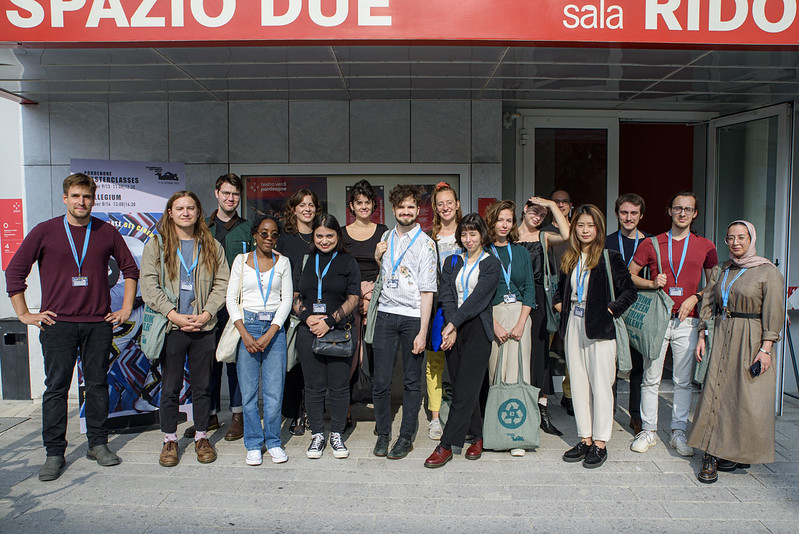
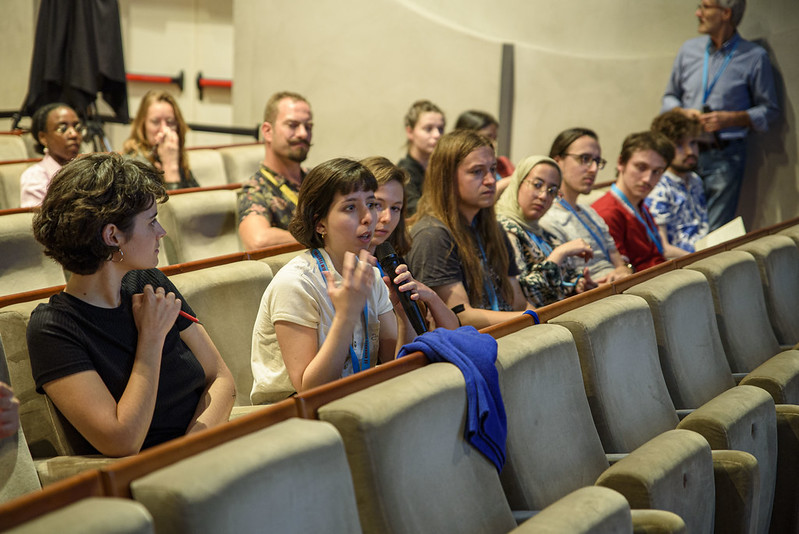
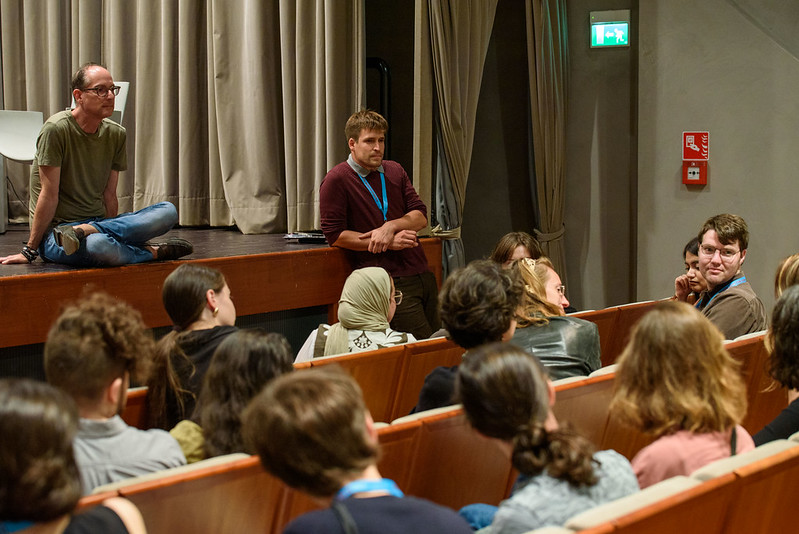
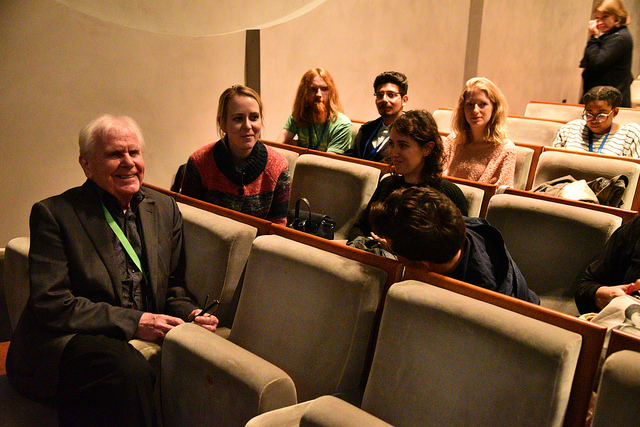
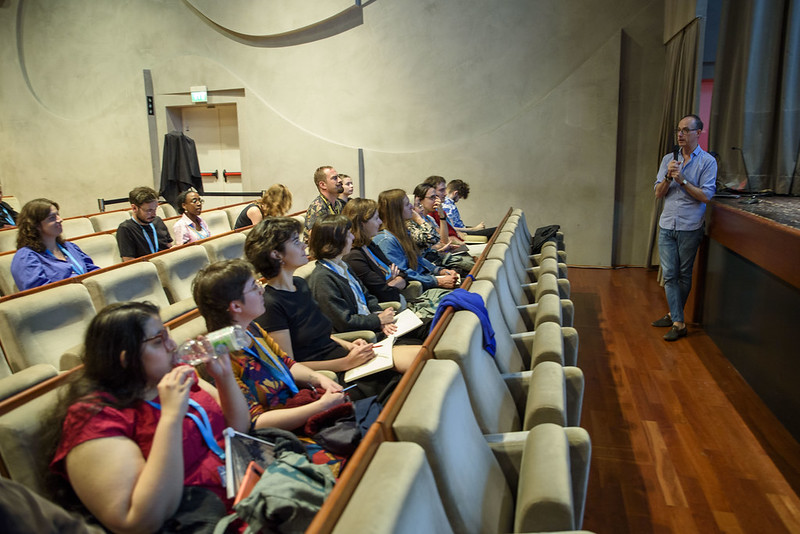
Now in its 26th year, the Collegium’s aims continue to remain unchanged: to attract new, young generations to the discovery of silent cinema and to integrate these newcomers into the very special community that has evolved around the Giornate during its four decades. It is designed to take advantage of the unique conditions of the Giornate – a highly concentrated one-week event; the possibility to see an extensive collection of rare archival films; the presence in one place and at one time of many (perhaps most) of the world’s best qualified experts in film history – scholars, historians, archivists, collectors, critics, academics, and just plain enthusiasts. Rejecting the conventional “summer school” style of a formal teaching programme, the Collegium insists on a fundamental, classical concept of study, in which the impetus is the students’ curiosity and inquiry. Instead of formal lectures and panels, the daily sessions are designed as “Dialogues”, in the Platonic sense, when the collegians meet with groups of experts in various disciplines. The Dialogues are designed not just to elicit information and instruction, but to allow the collegians to make direct personal and social connection with the Giornate habitués and to discover them as peers whom they can readily approach, in the course of the week, for supplementary discussion. To focus their inquiry, the members of the Collegium collaborate on the production of a collection of papers on themes emerging from or inspired by the experience of the week. Each collegian is required to contribute an essay, and the criterion is that the principal source must be the Giornate programme, or conversation and interviews with the scholars and experts to whom the week facilitates access. It has to be, in short, a work that could not have been produced without the Giornate experience. In order to support the collegians’ contributions to the festival, the best paper will be published on the Giornate website and awarded the Collegium prize inaugurated in 2008, which from 2024 will become the Russell Merritt prize.
Collegians 2024: Seif Abdo (US/EG), Daniel Lawrence Aufmann (US), Ellen Cleary (GB), Kaya Erdinç (NL), Estelle Kaufmann (FR), Yixuan Li (CN), Hugo Ljungbäck (SE), Matteo Masi (IT), Victor Morozov (RO), Jillian Nelson (US), Vanesa Tsvetanova (BG), Urvi Vora (IN), Amelia Grace Winburne (US).
Winners
2024 Lucía Ciruelos Rodríguez “The explanation of a metamorphosis: a reflection on two films that changed me during Le Giornate del Cinema Muto”
2023 Russell Zych: “Why Screen a Fragment?”
2022 Sofie Cato Maas: “A discontinuity given an illusory wholeness by the blessings of light”: the luminous quality of the silent cinema.
Ex aequo 2021 Leticia Magalãhes: It’s a mad mad mad world: mental health, slapstick and stardom in Carlo Campogalliani’s La Tempesta in un Cranio
Ex aequo 2021 Travis R. Merchant-Knudsen: The Intrusive, Necessary Labor of Archivists in the Face of Change
2020 Matheus Carvalho: The canon reassessed, masculinity and gender transgressions at the Giornate 2019
2019 Stephan Ahrens: Unheard music. Notes on silent music moments
2018 Sarah Rahman Niazi: Le Giornate del Cinema Muto and the encounter with Indian silent cinema
2017 Sebastian Köthe: Silent Film as Ambiguous Heritage
2016 Danielle Crepaldi Carvalho: Blessed Tears: the Human Soul Unveiled in Les Misérables by Henri Fescourt (1925-26)
2015 Guilherme Maggi Savioli: The Outcasts, or notes on a revolution
2014 Cesar de la Rosa Anaya: Aura Footprints of Early Cinema
2013 Thomas Clearly: The Accidental Artists: Art in Early Cinema
2012 Tom Brockley: Preserving a ‘Way of Seeing’: Post-archival Film Preservation
2011 Raphael Luce: Born by accident
2010 Ioana Salagean: Le mythe et le retour
2009 Polly Ellen Goodwin: How to Watch a Silent Film: The View from the Pit
2008 Maria Belodubrovskaya: Understanding the Magic:Special Effects in Ladislas Starewitch’s L’Horloge magique


 Italiano
Italiano